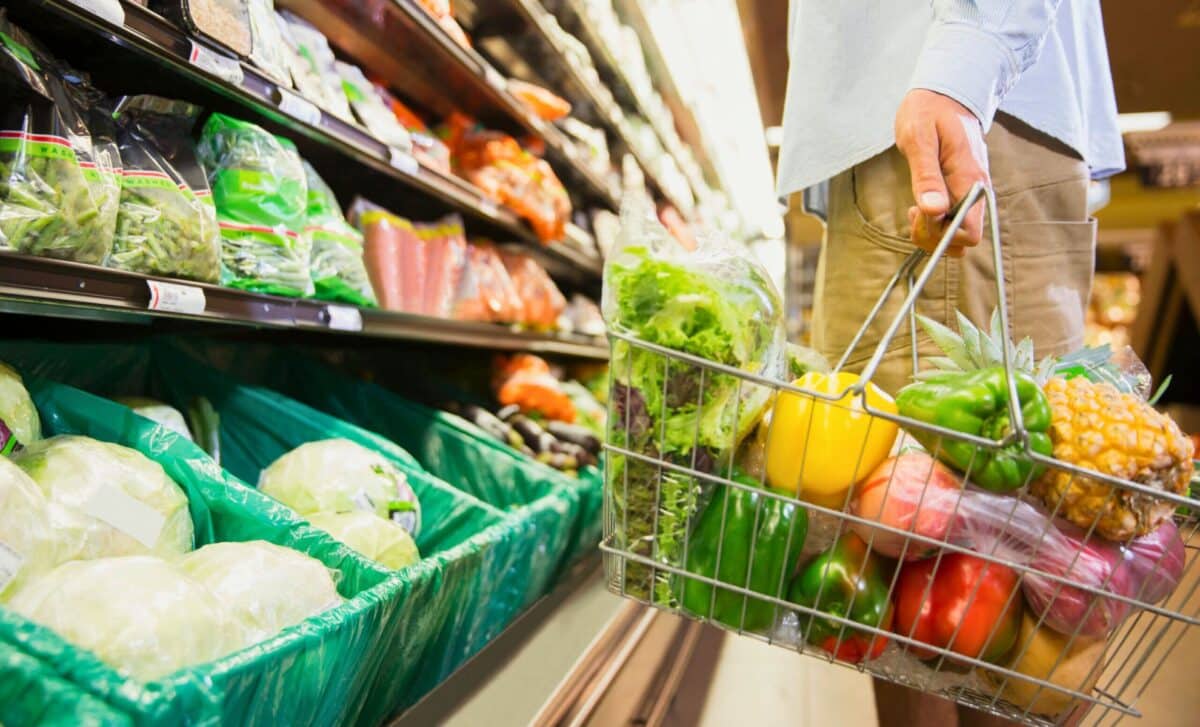British food inflation has reached its lowest level since February 2022, prior to Russia’s invasion of Ukraine, says industry data. The data suggests that rising food costs are finally beginning to dissipate.
Fraser McKevitt, Kantar‘s head of retail and consumer insight, noted that food inflation has “fallen sharply from a staggering peak” of 19.2% in March 2023, according to official data.
Kantar’s research shows that grocery inflation decreased to 4.5% in the four weeks to 17 March, down from 5.3% the previous month. The agency reported lower prices for butter, milk, and toilet paper last month.
Ahead of the release of official inflation statistics on 17 April, Kantar’s findings provide an early indication of the pressure on food costs. In February, official food inflation decreased to 5%, down from 7% month-over-month, and well below the 45-year high reached in March 2023. Chocolate, fruit, and fish prices declined, and fish costs were slightly lower year-over-year.
Impact of Russia’s Invasion of Ukraine on Food Inflation
After Russia’s invasion of Ukraine, food prices have increased, disproportionately affecting low-income households who spend a larger portion of their income on necessities. Food prices were the primary cause of inflation, decreasing from 4% to 3.4% in February. According to Kantar data, this trend has continued into the current month.
Bank of England Statements
Last week, Andrew Bailey, the Governor of the Bank of England, stated that he had a positive outlook on inflation. He noted that global shocks were unwinding and that there was no significant persistence in inflation at present.
“Global shocks are unwinding, and we don’t see a lot of sticky persistence [in inflation] at the moment. That’s the judgement that we need to keep coming back to.” said Andrew Bailey.
The markets anticipate that the Bank of England will begin to reduce interest rates from their current 16-year high of 5.25% during the summer, with the benchmark rate expected to fall to 4.5% by the end of the year.
Sales Figures Growth
In a reversal of the trend for most of the past two years, Kantar also found that sales of branded products and purchases at the most upmarket stores grew at a robust rate. In addition, premium online retailer Ocado recorded the fastest sales growth this month at 9.5%, thanks to a sustained voucher campaign that helped attract customers.
Ocado’s recovery was demonstrated by the company’s trading statement, which reported a 10.6% increase in retail revenues to £645.3 million in the first quarter. Quantities were up 8.1% to 242.1 million items and the number of active shoppers rose 6.4% to break through the one million mark.

Additionally, sales of branded products have slightly surpassed those of own-brand items, with increases of 6.1% and 4.7% respectively over the last four weeks.









